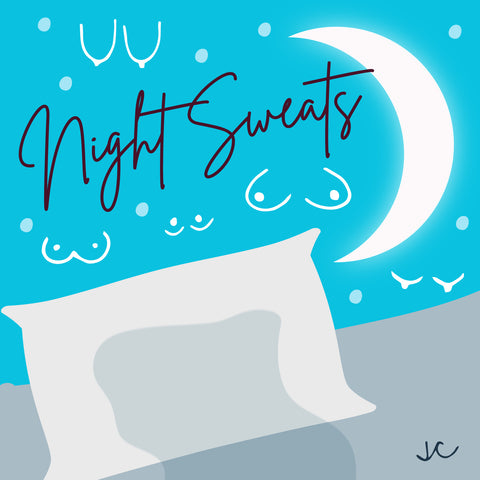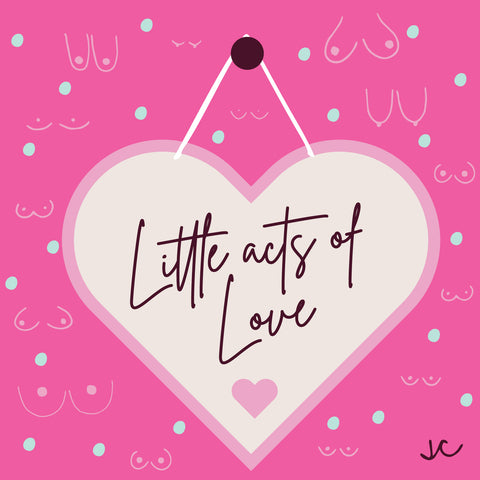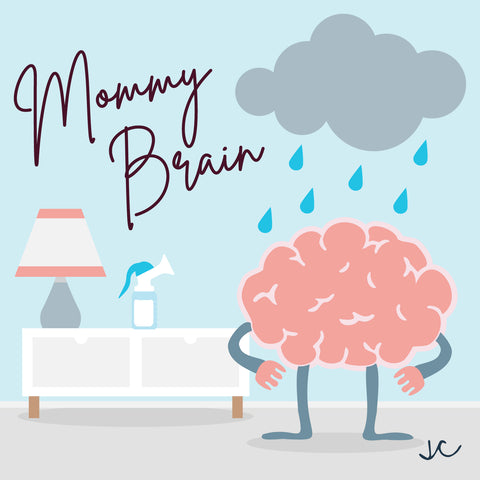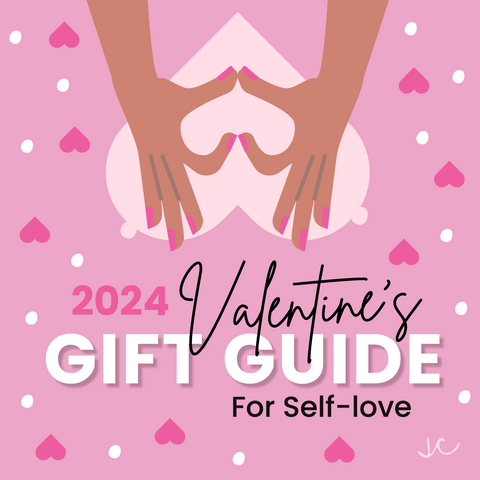Extended Breastfeeding: Explore its Meaning and Benefits

Estimated read time: 14 minutes
Ever wonder at what age is breastfeeding no longer beneficial?
Well, according to the American Academy of Pediatrics and the World Health Organization, birthing parents are recommended to exclusively breastfeed their babies for the first six months and continue (with complementary food) until they are around two years old.
And although this is an amazing thing to do, thanks to the benefits of breastfeeding and the amazing bond breastfeeding can bring between mom and baby, breastfeeding beyond “babyhood” can still be looked at as a taboo subject.
Although we believe that breastfeeding past infancy is simply, just breastfeeding.
The truth is, breastfeeding continues to be beneficial, and here at Titty City Design, we’re here to celebrate every stage of your breastfeeding journey, no matter what milestone you hit. Whether it’s a few days or a few years! And extended nursing is definitely something to celebrate. To us, extended breastfeeding is simply just breastfeeding.
But, what is extended breastfeeding and what are some extended breastfeeding benefits?
What is extended breastfeeding considered?
Extended breastfeeding (also known as long-term breastfeeding) is when you continue to breastfeed your beautiful baby beyond their first year.
But the thing is, extended breastfeeding, is just, well, breastfeeding!
While breastfeeding can be a challenge, once you get into the swing of your nursing routine and breastfeeding is established, it can be one of the most wonderful and joyful parts of motherhood.
In some areas of the world, extended breastfeeding is perfectly normal, and in some parts, it’s seen as a cultural taboo (the West, we’re looking at you!) Experts estimate that the natural weaning age for humans is somewhere between two and seven years.
After all, grown adults drink “breastmilk” from cows and other animals every day, so why is it so weird that a small, still-growing child does so from their mother? A source uniquely created just for them?
If you are asking at what age is breastfeeding no longer beneficial, then we are here to tell you that the bottom line is breastfeeding continues to offer benefits to mother and child (both to their health and mental and emotional well-being) for as long as it continues.
That's right, extended nursing benefits continue for as long as you aim to breastfeed.
The Benefits of Extended Breastfeeding
While extended breastfeeding is a personal choice and may not be for everyone, the amazing benefits of extended nursing for both mom and child shouldn’t be ignored. When breastfeeding is extended there are many benefits to foolow. Here are six benefits of extended breastfeeding, after 1 year:
1. Nutrition
If anyone tries to tell you that breast milk has no nutritional value after a year, then they are just plain wrong!
The fact is, breast milk is magical, and it changes to meet the needs of your developing child. This means after a year, it contains more calories, protein, calcium, fat, and other nutrients to keep up with their growing needs. An added bonus, if your little one is a fussy eater, your milk will fill in any nutritional gaps. It really is the ultimate multivitamin and food supplement.
2. Immunity
Another benefit of breastfeeding after 1 year is the immunity boost it provides. Breastfed babies are less likely to develop illnesses, and the longer you nurse, the more protection you provide for your child. This is especially important once they start going to daycare and are exposed to a whole bunch of new germs and bugs.
3. Health
Studies have shown that breastfeeding leads to better health outcomes, and can put your little one at a lower risk for allergies, obesity, and other illnesses. It’s also cumulative, so the more breastmilk your child gets, the better their health will be. Research has shown that breastfed babies and children enjoy all sorts of health perks when they grow up, including lower blood pressure and cholesterol. They’re also less likely to be overweight or obese, and to develop type-2 diabetes.
And if your child does get sick, breastmilk provides illness-specific antibodies to help them get better faster. It can also keep them from getting dehydrated if they reject other food or drink when they’re sick.
4. Better behavior
Did you know that some research shows that a longer duration of breastfeeding is associated with fewer behavioral problems in children? This includes anxiety, clinginess, and restlessness. Pretty awesome, right?
And though the research isn’t conclusive, some studies have found that the longer a toddler nurses, the smarter they will be thanks to the omega-3 fatty acids (or DHA) that are unique to breastmilk.
5. Calming effect
You know how Whipping a Titty Out can immediately help calm and soothe your newborn? Well, it has the same calming effect on a toddler who might need some additional comfort or help to calm down. A quiet, soothing nursing session can relax both mom and baby and help reset the day.
6. Extended breastfeeding is good for you too
The benefits of extended breastfeeding go beyond your child. Mamas who breastfeed are at a decreased risk for ovarian, breast, and endometrial cancer and the effects are aggregate - so the longer you nurse, the greater the benefit.
It can also protect you against osteoporosis, as you lose bone minerals during breastfeeding, but when you stop your body will build it back up. This will give you a higher density than before you started.
Why extended breastfeeding can still be seen as taboo
Breastfeeding past 1 year is no big deal. However, even though The World Health Organization recommends mamas breastfeed for two years, many women are made to feel uncomfortable about nursing their toddler or preschooler in public. Yep. Even in 2023, it can still be seen as ‘icky’ and make others feel uncomfortable.
Which we think is nuts!
The benefits of breastfeeding after 1 year are so incredible, as we’ve already seen. And it seems across the globe, breastfeeding after 1 year isn’t just something that’s nice to do, it’s basically the norm. Worldwide, mamas typically wean their little ones between two and four years, and in some places, breastfeeding until the age of six or seven is the norm. It seems that it’s only in the West that it has been deemed as “culturally unacceptable.”
An interesting report published by UNICEF called “The State of the World’s Children 2012” collected data about breastfeeding around the world. The below numbers represent the number of children breastfeeding at 20-23 months:
- 91% in Bangladesh
- 43% in Cambodia
- 49% in Costa Rica
- 88% in Ethiopia
- 46% in Guatemala
- 77% in India
- 50% in Indonesia
- 77% in Malawi
- 95% in Nepal
- 72% in Papua New Guinea
- 84% in Rwanda
- 84% in Sri Lanka
How awesome are those figures? But, if we compare these to Western nations, such as the US, the UK, Canada, Germany, and France, we hardly see any data. Why is that? It seems that in Western cultures, there isn’t the same level of support for the nursing mother-toddler relationship.
Because breastfeeding beyond the first year of life is seen as atypical in Western societies, mothers making the choice to extend their breastfeeding may face criticism and isolation. They might find it hard to find other moms who are also on an extended breastfeeding journey. Many women engage in what’s known as “closet nursing…” basically, hiding it.
Why? Well, mama, chalk it up to the sexualization of the breast and the established social norm of not nursing beyond a year - most women in the US stop breastfeeding before six months.
One thing’s for sure. We need more support. Extended breastfeeding needs to be seen as just as normal as nursing a newborn baby. Mamas need to feel supported and less alone. Because extended breastfeeding isn’t weird. It’s just breastfeeding.
Extended breastfeeding is just breastfeeding, mama
For lots of women, the hardest part of extended breastfeeding is the unwanted comments or looks of disapproval from family, friends, and strangers.
But you should never be made to feel like what you are doing is wrong, just because it isn’t common. Never let other people put pressure on you to stop, especially if you and your little one still enjoy breastfeeding. There are so many benefits of extended breastfeeding, and only you get to decide when it’s the right time to stop.
And remember, if people are truly concerned, tell them to mind their own Tits! There is not an age where breastfeeding is no longer beneficial.
We’re so proud of you mama, and we’re here for you if you ever need support.
At Titty City Design, we believe that every boobie is beautiful, and that should be celebrated. We are a female-owned and operated, small business here to spread self-love and body positivity with our line of boob apparel, boob accessories, and boob-themed decor and products for the home. A portion of our proceeds goes to help support postpartum people and breast cancer patients.
Unique Gifts for New Moms They Will Love












